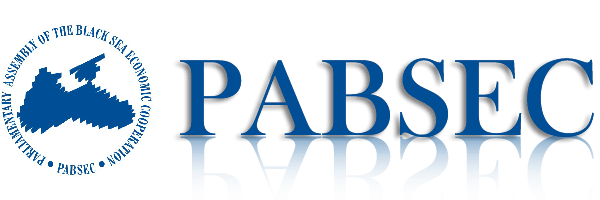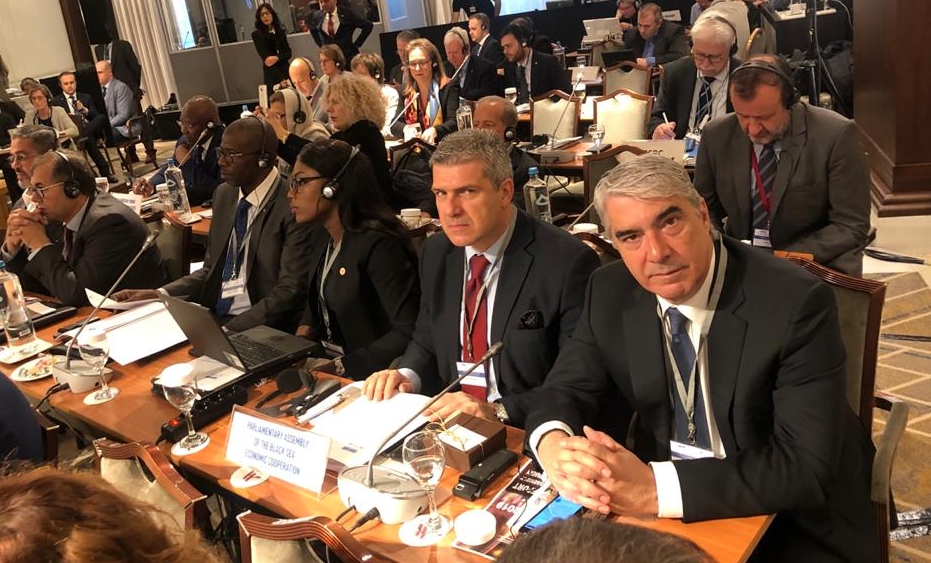The PABSEC Participation in the 14th Plenary Session of the Parliamentary Assembly of the Mediterranean (PAM), Athens, 19-21 February 2020
The PABSEC Vice-President and Head of the PABSEC Hellenic delegation Mr. Symeon Kedikoglou and the PABSEC Deputy Secretary General Mr. Miltiadis Makrygiannis participated to the 14th Plenary Session of the Parliamentary Assembly of the Mediterranean (PAM), which took place on 19-21 February in Athens hosted by the Hellenic Parliament.
At the Opening Session, the speeches were made by the President of the Hellenic Parliament Mr. Costantine Tassoulas and the PAM President, Sen. Dr. Alia Bouran (Jordan). The message of the United Nations Secretary General Mr. Antonio Guterres was voiced. Also, the speeches were made by the President of the Arab Inter-Parliamentary Union, the Assistant Secretary-General of the League of Arab States and by the Special Representative of the Director General of the World Health Organization.
During the Plenary Session, PAM parliamentarians reviewed the reports and voted the resolutions on the critical issues of concern, for the Euro-Mediterranean and Gulf areas, inter alia, the evolving threat by ISIS terrorists, the peace process in the Middle East, the national reconciliation process in Libya, the situation in North-Eastern Syria, the economic integration in the region, the challenges related to climate change following COP25, mass migrations and the promotion of Human Rights.
Mr. Symeon Kedikoglou, in his address, underlined the important geopolitical role of the Black Sea region as a bridge between Asia and Europe at the intersection of the main transport routes for energy resources. He noted that close cooperation with and among national Parliaments and interparliamentary organizations is the cornerstone of our collective efforts and synergies for the benefit of both the Black Sea and the Mediterranean regions. He also stressed, among other things, that both organizations, PABSEC and PAM strongly support the view that national parliaments play an extremely important role in ensuring peace and stability, respect of human rights, fundamental freedoms and the rule of law, encouraging peaceful initiatives, enacting measures for building trust, which will allow the elimination of misunderstandings, advancing the dialogue and promoting economic cooperation and good-neighborly relations between states.

